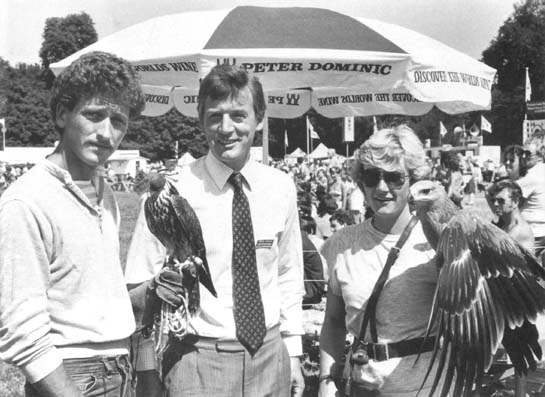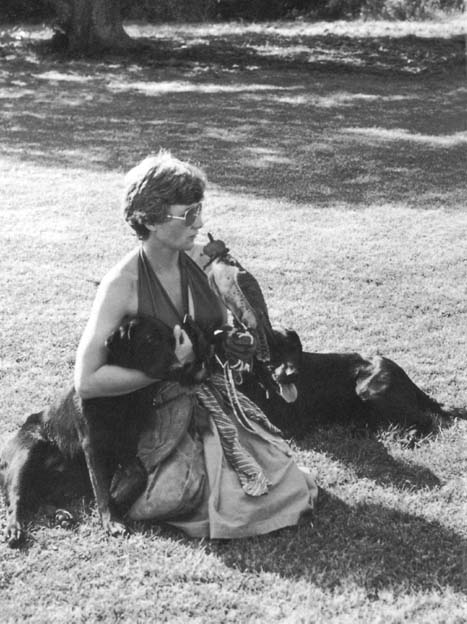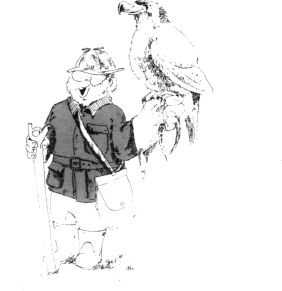

Goshawk flying free
As I said at the start of this book, falconry has changed and it is time for falconers to change with it. Many have already, some still have to catch up with the 1990s. Change does not necessarily mean for the worse; many changes in falconry have been very much for the better. Who would go back to flying birds without telemetry once they have learned to use it well; or want to lose the veterinary knowledge we have gained? Where would falconry be without captive breeding?
The people in falconry have changed too. It is a much broader spectrum that partake these days, but that is no bad thing. New people and fresh views are good for the sport, as long as the birds are well looked after and flown very regularly.
I can almost hear some people crying out how commercialism is ruining falconry. For heaven’s sake grow up, you people—what could we have done without it? Where would the incentive have been to get as far as we have in the field of captive breeding? No one in their right mind would be spending the amount of time and money that is now being spent on producing birds for no return. Anyone who does not believe that is, I guarantee, someone who either breeds nothing and consequently knows nothing of the costs or else is rich and can afford not to count them. If the costs were really added up, taking into consideration the amount of time and money invested, then captive breeding is only just beginning to pay for itself.
I would like to think that falconry does have a future in this country. There are countries where falconry has been banned. There are countries where falconry is illegal. Its future in Britain has been shaky at times, but falconry is stabilising now with the 1984 legislation and with captive breeding. The future of falconry here now lies in the behaviour of those people partaking in the sport, the success of captive breeding, the availability of land and quarry, and, probably the most risky aspect of all, the continuance of legal field sports.
It is up to all of us in falconry now and those who come into it in the future, to make sure that we behave, not only within the laws, but within certain moral codes—not some of the very out-dated codes in the existing clubs, but a code that ensures the safety of falconry for future generations. There must be respect and enjoyment of the quarry and due regard to land and landowners. Thoughtful caring falconers must look after their birds well and hunt them regularly, keeping them happy and a credit to the sport. That includes old birds who have served well and deserve in their retirement also to be served well. I would like to see the end of people overburdened with birds that they cannot possibly fly regularly and are not trying to breed with.

Conservation is expensive. If sponsorship can help, it should not be frowned upon. Peter Dominic sponsored me for five years

I would like to think that falconry does have a future
Breeders of captive birds should make sure that they behave responsibly, breeding good birds, and trying to ensure good, knowledgeable homes. Wherever possible they should not use or sell siblings as breeding pairs, thus causing possible problems in the future.
Those teaching falconry should advise people when they are and when they are not suitable to carry on further in the sport. Those in front of the public should not over-encourage people to start falconry, nor exaggerate the powers and dangers of raptors in general.
Falconry has enough potential enemies; there are many that would like still to see it banned. So most important, apart from the welfare of the birds, falconers should, like the conservationists, forget their arguments or differences and pull together to make sure that their sport does indeed have a future.
